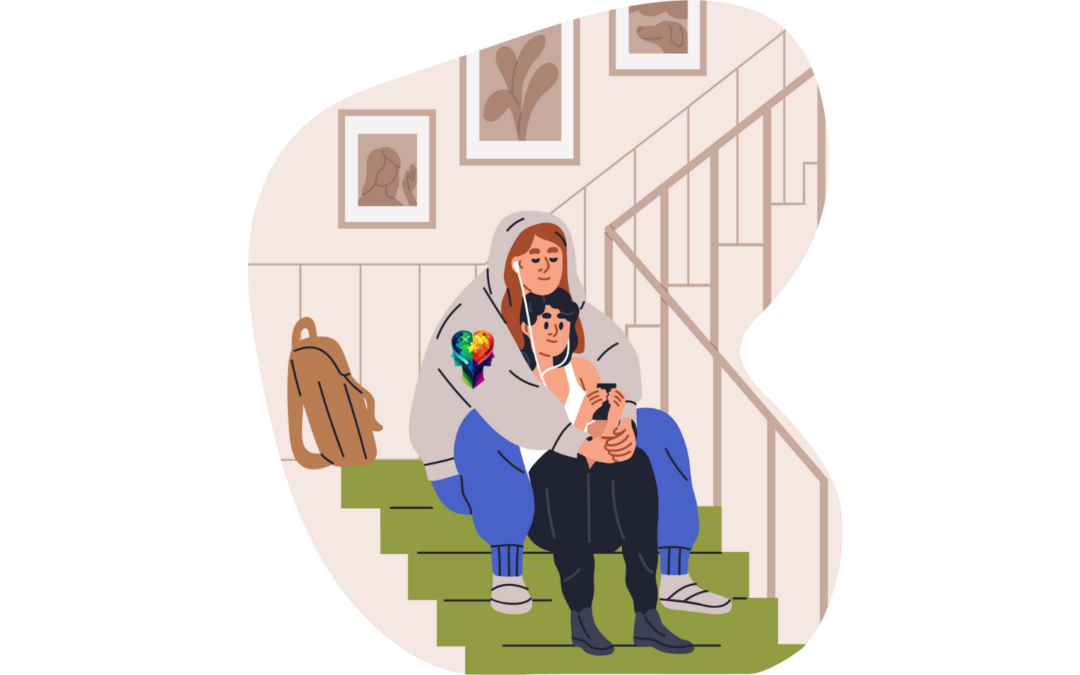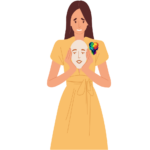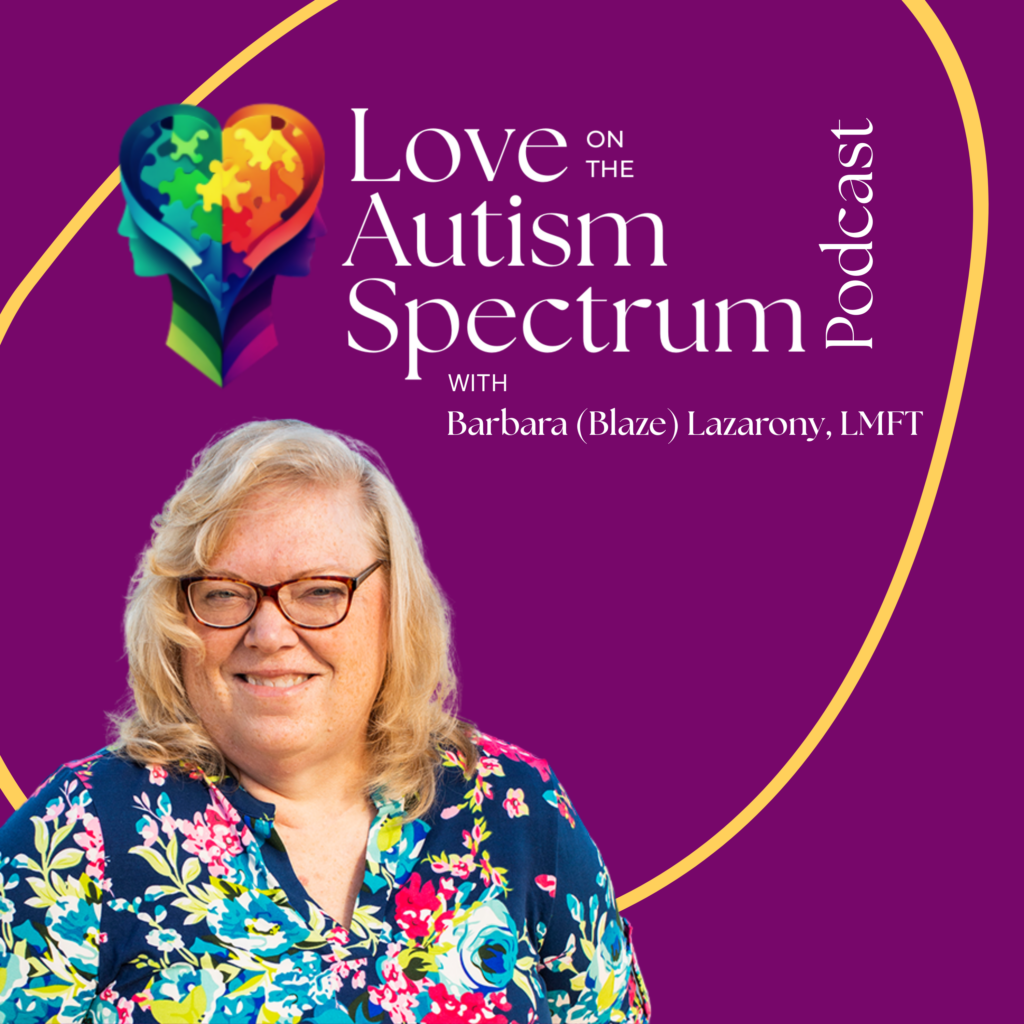Yes, AuADHD Sexless marriages happen.
They happen more often than you think, especially in relationships where one or both partners have combined Autism and ADHD (AuADHD). It’s not a failure. It’s not hopeless. But it is more common in neurodivergent relationships—and understanding why is the first step to rebuilding intimacy.
This blog post will explore couples’ unique challenges in AuADHD relationships and offer practical tips for improving communication, understanding each other’s needs, setting boundaries, and reigniting passion in a sexless marriage.
AuADHD Sexless Marriage: Key Takeaways
- AuADHD can lead to sexless marriages.
- Understanding the root causes is crucial in rebuilding intimacy.
- Communication and patience are essential for addressing this issue.
Defining an AuADHD and a Neurotypical Marriage
Before discussing the specific challenges faced in AuADHD relationships, it’s essential to define what is meant by “AuADHD” and “neurotypical.”
AuADHD refers to a combination of both Autism and ADHD, two neurodevelopmental disorders that affect an individual’s ability to focus, regulate emotions, and communicate effectively. While each disorder has distinct characteristics, they often coexist in individuals, leading to unique challenges.
On the other hand, a neurotypical marriage refers to a relationship between two people who do not have any neurodivergent conditions. This term is often used as a contrast to describe relationships where one or both partners have AuADHD.
Key Challenges Faced in AuADHD Relationships:
1. Communication Differences:
One of the most common challenges in AuADHD relationships is communication differences, often exacerbated by ADHD symptoms. Individuals with AuADHD may struggle with verbal and nonverbal communication, leading to misunderstandings and misinterpretations. They may also have difficulty expressing their thoughts and feelings or understanding social cues and body language.
2. Sensory Overload:
Many individuals with AuADHD also encounter sensory processing challenges, which can be overwhelming for both partners in a relationship. This may present as hypersensitivity to specific stimuli, such as noise or touch, or as hyposensitivity, where they may not perceive sensations until they become intense.
3. Time Management Issues:
If you have AuADHD, you may constantly struggle with managing time effectively. This challenge isn’t just about missing appointments—it can also strain your relationship, especially when your partner doesn’t share these neurodivergent traits and naturally operates with a different sense of time awareness. Remember, this gap in time perception isn’t about not caring enough; it’s a genuine difference in how your beautiful brain works!
4. Impulsivity:
Impulsivity is a common trait among individuals with AuADHD, often leading to hasty decisions that can negatively impact the relationship. The non-ADHD partner may perceive These impulsive actions as reckless or thoughtless, creating friction and tension.
5. Emotional Dysregulation:
Emotional dysregulation refers to difficulty managing and regulating emotions, which is often experienced by those with AuADHD. This can result in outbursts of anger or frustration that may be directed towards their partner, creating conflict in the relationship. Emotional dysregulation can be particularly challenging in cases of undiagnosed ADHD, where symptoms are not yet managed.
Emotional dysregulation can also contribute to sexual dysfunction, further complicating the intimate relationship between partners.
6. Forgetfulness:
Forgetfulness is another common symptom of AuADHD, which can cause frustration and strain in a relationship. The non-ADHD partner may feel like they are constantly reminding their partner about important tasks or events, leading to feelings of resentment and frustration.
7. Difficulty with Organization:
Individuals with AuADHD often struggle with organization and time management, which can create challenges in the relationship. This may lead to conflicts over household responsibilities or missed appointments, causing tension and stress for both partners.
8. Communication Issues:
Effective communication is essential for any successful relationship, but individuals with AuADHD may struggle with this due to symptoms such as impulsivity and forgetfulness. They may have difficulty listening or paying attention during conversations, leading to misunderstandings and frustrations for both partners.
Both partners need to be patient and practice active listening to improve communication.
9. Financial Concerns:
AuADHD can also have a significant impact on financial stability and responsibility. Individuals with ADHD may struggle with impulse control, leading to impulsive spending or difficulty managing finances. This can create tension in the relationship and cause stress and strain on overall household finances. Many couples have bought expensive vacations or activities in hopes of rekindling intimacy, only to find that the desired emotional connection wasn’t achieved despite the financial expenditure.
Understanding an AuADHD Sexless Marriage: Why Is It More Common?
A sexless marriage is one where the frequency of sexual activity between partners is significantly low or non-existent. While this can occur in any relationship for various reasons, it is more common in marriages where one or both partners have been diagnosed with adult AuADHD.
In a marriage where one partner has AuADHD, the other may struggle to understand and cope with the effects it has on their relationship, leading to frustration and resentment among ADHD partners. This lack of understanding can lead to feelings of frustration, resentment, and, ultimately, a lack of physical intimacy.
One possible explanation for the higher prevalence of sexless marriages in those with AuADHD is difficulty with impulse control. People with AuADHD often struggle with impulsive behaviors and decision-making. This can manifest in many ways, such as impulsive spending or difficulty managing finances.
For couples where one partner has AuADHD, this impulsivity can create tension and conflict within the relationship. One partner may feel frustrated by their spouse’s impulsive spending habits or inability to stick to a budget. This can cause stress and strain on overall household finances, leading to arguments and potential resentment.
Additionally, people with AuADHD may also struggle with emotional regulation, making it challenging to navigate conflicts and disagreements healthily. This can further exacerbate issues within the relationship, as communication and conflict resolution skills are crucial for maintaining a strong and healthy partnership.
Furthermore, individuals with AuADHD may have difficulty with organization and time management, leading to chaos and disarray in the household. This can be incredibly challenging for couples who share responsibilities and tasks, as one partner may feel burdened by constantly picking up the slack or reminding their spouse about essential deadlines or commitments.
Understanding Adult ADHD and Sex Life
Adult ADHD can significantly impact a person’s sex life, leading to a variety of challenges in intimate relationships. These challenges often stem from the unique ways AuADHD affects emotional connection, communication, and physical intimacy.
Individuals with AuADHD frequently experience fluctuations in sexual desire, which can create misunderstandings or unmet expectations in a relationship. This variability may be due to the sensory sensitivities, emotional regulation difficulties, or fatigue that often accompany AuADHD. Negative feelings, such as resentment and exhaustion, can dampen one partner’s mood, ultimately impacting their desire for intimacy and sexual connection.
Research indicates that women and individuals with AuADHD are more likely to face sexual problems, including low libido, difficulties with physical closeness, and even issues with achieving orgasm. These factors can add strain to a relationship, mainly if they are not openly discussed or understood by both partners.
The symptoms of AuADHD—such as inattention, hyperactivity, and distractibility—can make it hard for an AuADHD partner to be fully present and engaged during intimate moments. For example, they may struggle to focus on their partner’s needs or become easily distracted, interrupting the connection flow during intimacy. This can leave the non-ADHD partner feeling emotionally overlooked, neglected, or frustrated.
Over time, these issues may contribute to feelings of resentment, especially if the non-ADHD partner finds themselves shouldering more of the emotional and logistical responsibilities within the relationship. This dynamic can lead the non-ADHD partner to feel more like a caregiver or parent than an equal partner, which may further complicate intimacy and emotional connection.
Developing mutual understanding, open communication, and strategies for managing these challenges is essential for fostering healthier, more fulfilling relationships.
The Impact of AuADHD Symptoms on Marriage
AuADHD symptoms can profoundly affect marriage, creating significant challenges in communication, intimacy, and conflict resolution. These effects can be particularly pronounced when AuADHD is undiagnosed or poorly managed, as the symptoms may contribute to persistent misunderstandings and emotional distress within the relationship. For example, impulsivity, forgetfulness, and difficulty following through on commitments can frustrate the non-ADHD partner, leading to feelings of being ignored or undervalued.
The non-ADHD partner may feel overwhelmed and question their ability to handle the relationship dynamics effectively.
Meanwhile, the AuADHD partner may feel overwhelmed, criticized, or misunderstood, often responding in defensive or childlike ways. This dynamic can result in a “parent and child” relationship, where one partner feels burdened with managing responsibilities. At the same time, the other becomes more passive and dependent, further straining the emotional connection.
In some cases, AuADHD symptoms may also contribute to compulsive sexual behavior disorder, introducing another layer of complexity into the marriage. This can cause further emotional distance, trust issues, or conflict as the non-ADHD partner struggles to understand and cope with this behavior.
Additionally, the strain caused by these challenges may result in a lack of intimacy, often leading to a sexless marriage. The non-ADHD partner may feel more like a caregiver than a romantic partner, leading to feelings of resentment or loneliness.
Over time, these unresolved issues can create a cycle of frustration and emotional disconnection, making it crucial for couples to seek understanding, empathy, and appropriate support to navigate the effects of AuADHD on their relationship.
The Dynamics of Neurodivergent Intimacy with an AuADHD Partner
You cannot approach intimacy in an AuADHD marriage the same way you would in a neurotypical relationship. Why? Because neurodivergent dynamics are complex, especially when considering the unique challenges faced by AuADHD partners in maintaining intimacy. Consistently stepping in to manage a partner with ADHD can lead to resentment and loss of intimacy in long-term engagements.
For some, these dynamics may also include managing compulsive sexual behavior disorder, which can further complicate intimacy.
- Sensory Sensitivities: For some, physical touch can be overwhelming—too rough, light, cold, or warm. What feels comforting to one partner may feel unbearable to the other.
- Communication Challenges: People with ASD may struggle to articulate their needs or interpret their partner’s intentions, while ADHD mind-wandering can make focused conversations harder.
- Energy Levels: ADHD hyperactivity versus autistic burnout leads to mismatched momentum, especially at the end of a long day.
Understanding these dynamics is not admitting fault—it’s unlocking potential.
Sex Drive and AuADHD
Sex drives in individuals with AuADHD can vary widely, with some experiencing hypersexuality—a very high sex drive—and others experiencing hyposexuality or a lack of sexual interest in sex. Hypersexuality is often linked to ADHD, as impulsivity and difficulty regulating behavior can lead to heightened sexual desires and a greater likelihood of engaging in risky sexual behaviors. Research suggests this may stem from ADHD-related challenges with impulse control and seeking dopamine stimulation, both of which can influence sexual habits.
However, it’s important to note that not everyone with ADHD has a high sex drive. Some individuals may experience hyposexuality, where their sex drive is lower than average, which could be influenced by factors such as coexisting mental health conditions, medication side effects, or heightened sensory sensitivities associated with autism. Specific actions or situations, such as a partner’s impulsive behavior, can lead to emotional or sexual disengagement, causing one partner to feel turned off.
In addition, some people with Autism Spectrum disorder, who often experience challenges with social communication and emotional regulation, may also struggle with understanding and managing sexual desires. This can lead to difficulties in navigating consensual sexual relationships and making informed consent decisions.
Individuals with AuADHD need to have access to comprehensive therapy and/or sex education that addresses their specific needs and challenges. This could include tailored information on healthy relationships, self-care strategies for managing impulsivity, and resources for communicating boundaries and obtaining consent.
Because the spectrum of experiences is so broad, consulting a mental health professional can be incredibly beneficial. They can help individuals with ADHD navigate challenges related to their low sex drive, identify underlying causes, and develop personalized strategies to manage their sexual health and relationships effectively. Open communication with partners and understanding personal needs are key to fostering healthy connections.
Seek Guidance from a Mental Health Professional
Sometimes, you need a map. Marriage therapists or sex counselors familiar with neurodivergent dynamics can provide strategies explicitly designed for AuADHD couples.
- Therapeutic Support: Therapists can help unpack past trauma, align expectations, and identify external stressors impacting intimacy.
- Couples Coaching for Neurodivergence: Coaches with expertise in ADHD and Autism provide actionable tools to manage meltdowns, emotional regulation, and conflicting needs.
- Sex Therapy: A sex-positive therapist can explore ways to overcome sensory barriers or mismatched libidos to rebuild physical connection. A sex therapist can also uncover underlying issues that affect intimacy, improving sexual satisfaction and functionality.
- Addressing Sex Addiction: Therapists can help address issues related to sex addiction in ADHD relationships, exploring how ADHD may influence sexual behaviors and providing strategies to manage compulsive sexual behavior.
Specialized treatment can help neurodivergent couples overcome unique sexual challenges. Take control of your relationship. As a therapist in California and a coach worldwide, I provide the tools and guidance you need to thrive. Schedule an initial consultation today and start building the relationship you deserve.
Seeking help is not a sign of failure. It’s a testament to your commitment to each other.
Overcoming Challenges in AuADHD Marriage
Navigating the complexities of an AuADHD marriage requires dedication, adaptability, and a collaborative approach. Both partners need to actively participate in managing AuADHD symptoms and fostering a supportive environment. Couples should repeat affirmations of love and commitment to maintain emotional connection and resilience during challenging times.
Tips for Creating Sexual Intimacy in an AuADHD Sexless Marriage
Improved intimacy in AuADHD marriages is possible. Addressing sexual dysfunctions can be a part of cultivating fulfilling intimacy. With intentional effort, empathy, and creativity, you can rewrite your connection to suit you. Understanding and managing ADHD can help stop the negative consequences on sexual health and dynamics within a partnership. Here’s how to start:
1. Reimagine Intimacy
Start small. Redefine “intimacy”—it’s not just sex. It’s about the little moments that bring you closer. Holding hands during a walk, sharing long, comforting hugs after a stressful day, or laughing together over an inside joke that only the two of you understand.
These small gestures may seem simple, but they build trust, strengthen emotional bonds, and create a foundation for deeper, more meaningful connections over time. Every shared moment adds to the story you’re building together.
2. Create a Sensory-Safe Space
Intense sensory inputs can be distracting—or even downright unbearable—during intimacy. To create a more comfortable and enjoyable experience, dedicate a safe and calming space for both partners. This could mean dimming the lights, using soft, soothing textures like blankets or pillows, or eliminating harsh or jarring sounds.
Consider incorporating elements that bring a sense of relaxation, such as calming scents, warm lighting, or gentle background music. The key is to adjust the environment based on what feels right and soothing for both of you, ensuring the space fosters connection and comfort.
3. Schedule Intimacy
Spontaneity is often idolized as the key to maintaining passion, but for neurodivergent relationships, scheduling time for intimacy can relieve unnecessary pressure and make connection easier. By blocking out dedicated time to focus entirely on each other without interruptions, you create space for meaningful interactions. This could be an hour for physical connection, such as cuddling or exploring intimacy, or even just time for intentional conversations, where you can share thoughts and feelings and strengthen emotional bonds.
Planning helps ensure intimacy feels less rushed, more deliberate, and ultimately more fulfilling for both partners.
4. Learn Together
Invest time in understanding each other’s needs, triggers, and unique communication methods. Read books about autism and AuADHD in relationships to gain deeper insights into how neurodivergent partners experience the world.
Explore resources like the Love on the Autism Spectrum blog posts for real-life stories, practical advice, and tips to strengthen your connection. Building a supportive and understanding relationship takes effort, but the rewards of truly knowing and appreciating each other are worth it.
5. Celebrate Wins
Celebrate. Celebrate. Celebrate.
Each time you communicate better, overcome a sensory barrier, or find a new way to connect, take a moment to celebrate it—no matter how small. These small victories are milestones, whether you understand someone more clearly, express yourself more effectively, or foster a deeper connection. They build momentum, paving the way for even more progress and stronger relationships.
Breaking the Stigma Around AuADHD and Sex
There is a significant stigma surrounding AuADHD and sex, which often causes individuals to feel ashamed, embarrassed, or isolated when dealing with sexual challenges. This stigma can prevent people from seeking the help they need or even acknowledging the impact of AuADHD on their sexual health. It’s essential to recognize that AuADHD is a legitimate medical condition that can influence various aspects of life, including relationships, intimacy, and sexual expression. Challenges such as difficulty maintaining focus, sensory sensitivities, or emotional regulation can all play a role in impacting one’s sex life.
By breaking the stigma and fostering open conversations, individuals can feel more comfortable addressing their sexual concerns with both their partners and healthcare providers. Open communication can lead to greater understanding, stronger relationships, and the ability to work towards solutions together.
A mental health professional can provide a safe, non-judgmental space to explore these issues, helping individuals and couples develop strategies to enhance intimacy and connection. Additionally, professionals specializing in sexual medicine are equipped to offer tailored advice, support, and effective treatments to address these challenges, ensuring individuals can experience a fulfilling and satisfying sex life. Breaking the stigma is the first step toward empowerment and improved well-being. We encourage readers to share their experiences and insights in the comments to foster community engagement and provide support for individuals dealing with challenges related to ADHD.
Summary
Your Marriage, Your Rules!
Having AuADHD doesn’t mean resigning yourself to a sexless marriage. It just means doing other things very differently—and that’s okay. Your intimacy doesn’t have to look like anyone else’s. It just has to work for you.
The key to thriving in neurodivergent relationships is mutual understanding, communication, and patience. There will be challenges, but there will also be solutions—for intimacy, connection, and, yes, hold-your-breath passion.
Your marriage was never designed to be typical. But it was intended to be yours.
Want to deepen your connection? Start an open-ended conversation with your partner tonight. If you still feel stuck, seeking professional advice tailored to neurodivergent couples could be the next step.
Frequently Asked Questions
Can neurodivergent individuals have successful relationships?
Absolutely! While there may be unique challenges, neurodivergent individuals can have happy and fulfilling relationships with their partners. It just takes understanding and communication.
How can I improve intimacy in my neurodivergent relationship?
Understanding each other’s needs and preferences is the key to improving intimacy in a neurodivergent relationship. This involves open communication, patience, and creative solutions that work for both partners.
What if I feel stuck or overwhelmed in my neurodivergent relationship?
Seeking professional advice from a therapist or counselor specializing in working with neurodivergent couples can be helpful. They can provide personalized guidance and support to navigate any challenges in the relationship.
What activities or exercises can we do together to strengthen our bond?
Engaging in shared interests, such as cooking, hiking, or playing games, can help build a stronger connection between partners. It’s also beneficial to try new things together and be open-minded to each other’s hobbies. Couples therapy may also offer specific exercises or techniques for strengthening emotional intimacy.









